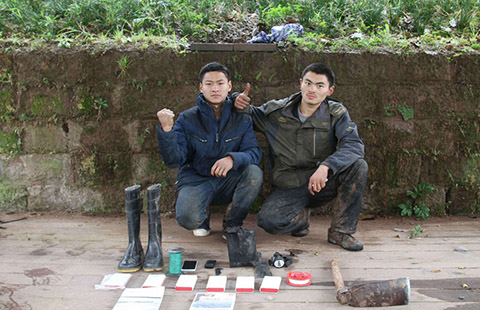Discrimination against pregnant woman riles netizens
(Xinhua) Updated: 2016-03-05 20:25Though unlawful, job discrimination against women still pervades Chinese society.
According to a national survey by the All-China Women's Federation (ACWF), about 75 percent of women said they were fired after getting married or pregnant.
Wu Liqing, an employee in a private company in Inner Mongolia Autonomous Region, said most of her female friends and classmates have experienced job discrimination, although most of them have stayed silent due to heavy employment pressure.
"For us, mum's the word, even when our rights are abused," Wu said.
Hao Huafang, who has worked in a public institution for almost three years, said she still feels awkward whenever she recalls the job interview.
"The boss made it clear only those who will stay unmarried for three years will be recruited," she said. "At that time most candidates were about 26. If we wait another three years, we would be near 30. Hello? No one wants to be a leftover woman in China!" But she gave in eventually and was subsequently recruited.
With the lifting of the one-child policy, the situation is likely to get worse if no measures are taken, according to Wen Jun, head of the Sociology Institute of East China Normal University.
Jiang Yongping, an ACWF researcher, suggested enterprises should not simply focus on short-term labor costs.
"Companies should learn to appreciate women's advantages and values and help them get back to work to contribute to company growth," she said. "Authorities should step up supervision on enterprises, while the government should compensate companies willing to recruit female workers."
Zhou Xiaozheng, a sociology professor with Renmin University of China, said women should "boycott" unfair clauses at work.
"They should learn to protect their legitimate rights," Zhou said.
- Minister: Cuts in overcapacity won't cause massive layoffs
- Govt plans to reduce water and air pollutants by 2-3%
- Li: Growth of at least 6.5% achievable
- Xi vows to curb Taiwan secessionists
- Shenzhen eyes land reclamation to curb rising housing price
- Eight issues in spotlight at the two sessions
- Suggestions pledged on reform and efficiency
- The project that opened a window to the world
- New faces at National People's Congress
- Digging deep to explore subterranean space







